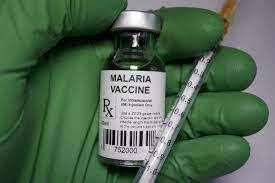
A vaccine for Malaria is almost here
Malaria kills more than 400,000 people in Africa every year.
BioNTech, the pharmaceutical firm that partnered Pfizer to hand the world a COVID-19 vaccine in ten months–to global acclaim–is now developing the first vaccine for Malaria, based on the same mRNA technology.
Millions of Africans live with and manage malaria annually with medication that only reduces the viral load of the mosquito-borne illness.
A vaccine will eradicate the disease and wipe it off the bloodstream.
The Mainz, Germany-based BioNTech, said on Monday that it is also exploring vaccine production in Africa as part of efforts to build up manufacturing capacity on the continent.
“The response to the pandemic has shown that science and innovation can transform people’s lives when all key stakeholders work together towards a common goal,” said BioNTech Chief Executive and co-founder Ugur Sahin.
Scientists around the world have been working for decades to develop a vaccine to prevent malaria.
Malaria infects millions of people every year and kills more than 400,000–most of them babies and young children–in the poorest parts of Africa.
About the vaccine
Malaria is a complex infection caused by a parasite that evades recognition by the immune system.
Sahin said the goal is to develop a vaccine that makes the parasite visible and attackable from the very beginning.
Messenger RNA vaccines prompt the human body to make a protein that is part of the pathogen, triggering an immune response.
They are also quicker to develop than traditional vaccines and can be adapted relatively easily.
“The very high efficacy of two mRNA vaccines for COVID-19 have shown the world just how powerful this technology could be against many diseases, including malaria,” said World Health Organisation (WHO) head Tedros Adhanom Ghebreyesus, who started his career as a malaria researcher.
The world’s first and only licensed malaria vaccine, Mosquirix, was developed by GlaxoSmithKline (GSK.L).
Mosquirix was developed after many years of clinical trials across several African countries.
However, it is only around 30% effective.

